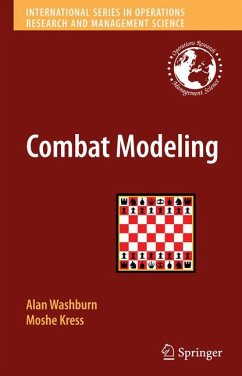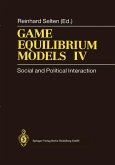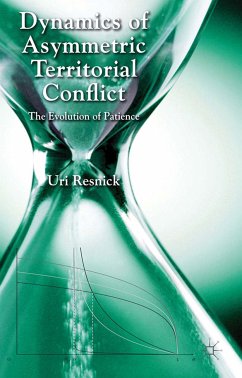Combat Modeling is a systematic learning resource and reference text for the quantitative analysis of combat. After a brief overview, authors Washburn and Kress present individual chapters on shooting without feedback; shooting with feedback; target defense; attrition models; game theory and wargames; search; unmanned aerial vehicles; and terror and insurgency. Three appendices provide a review of basic probability concepts, probability distributions, and Markov models; an introduction to optimization models; and a discussion of Monte-Carlo simulations. This is a book that can be used as a military manual, reference book, and textbook for military courses on this vital subject.
The authors also provide a link for downloading Microsoft Excel workbooks they've developed and that are used throughout the book that include VBA (Visual Basic for Applications) code for certain functions or commands. Drawing on their many years of experience at the Naval Postgraduate School in Monterey, California, Washburn and Kress have created a reference that will provide the tools and techniques for analysts involved in the underpinnings of combat decisions.
Dieser Download kann aus rechtlichen Gründen nur mit Rechnungsadresse in A, B, BG, CY, CZ, D, DK, EW, E, FIN, F, GR, HR, H, IRL, I, LT, L, LR, M, NL, PL, P, R, S, SLO, SK ausgeliefert werden.









